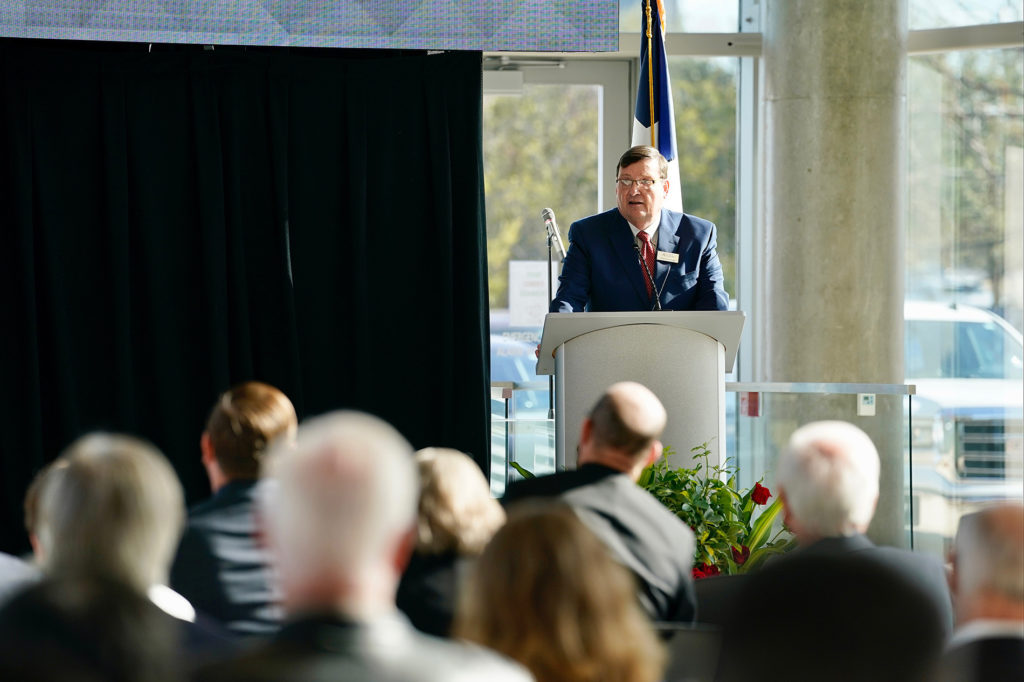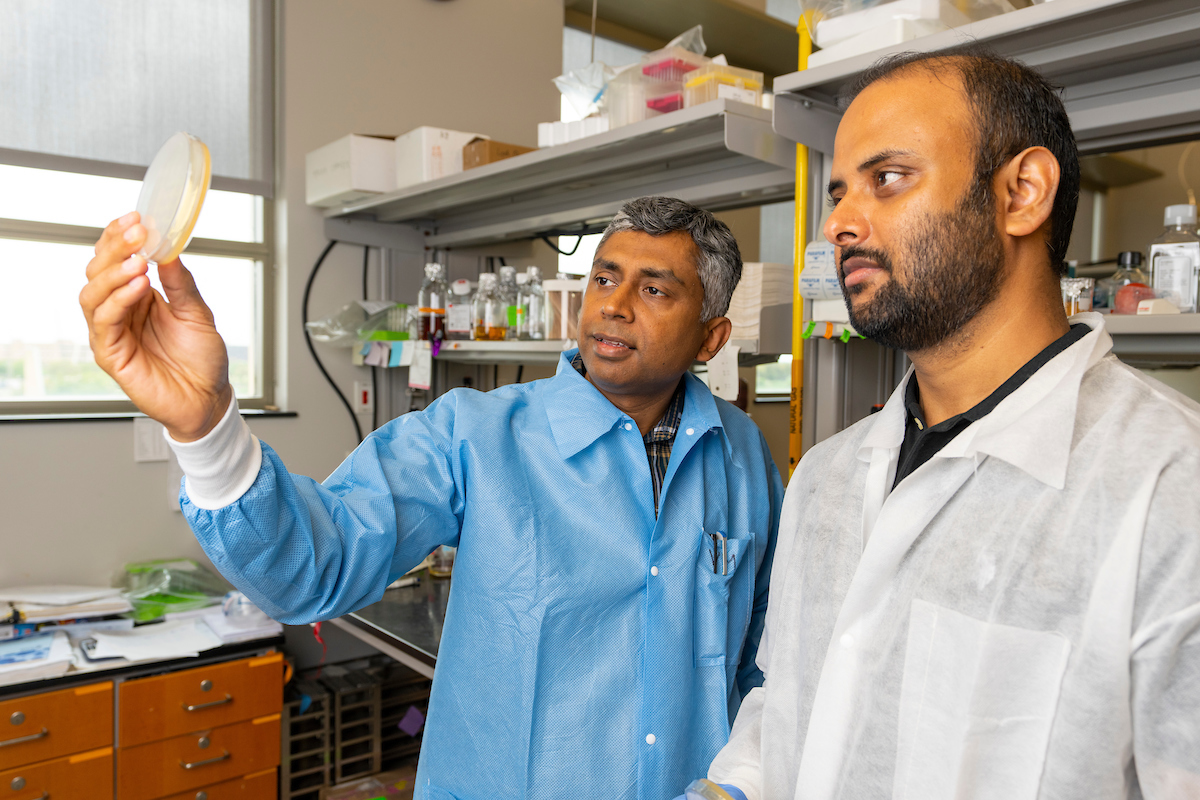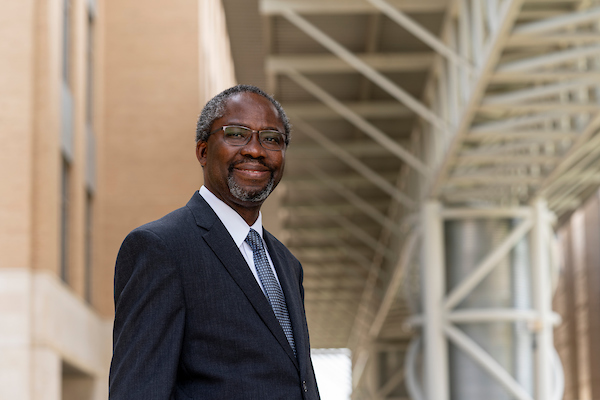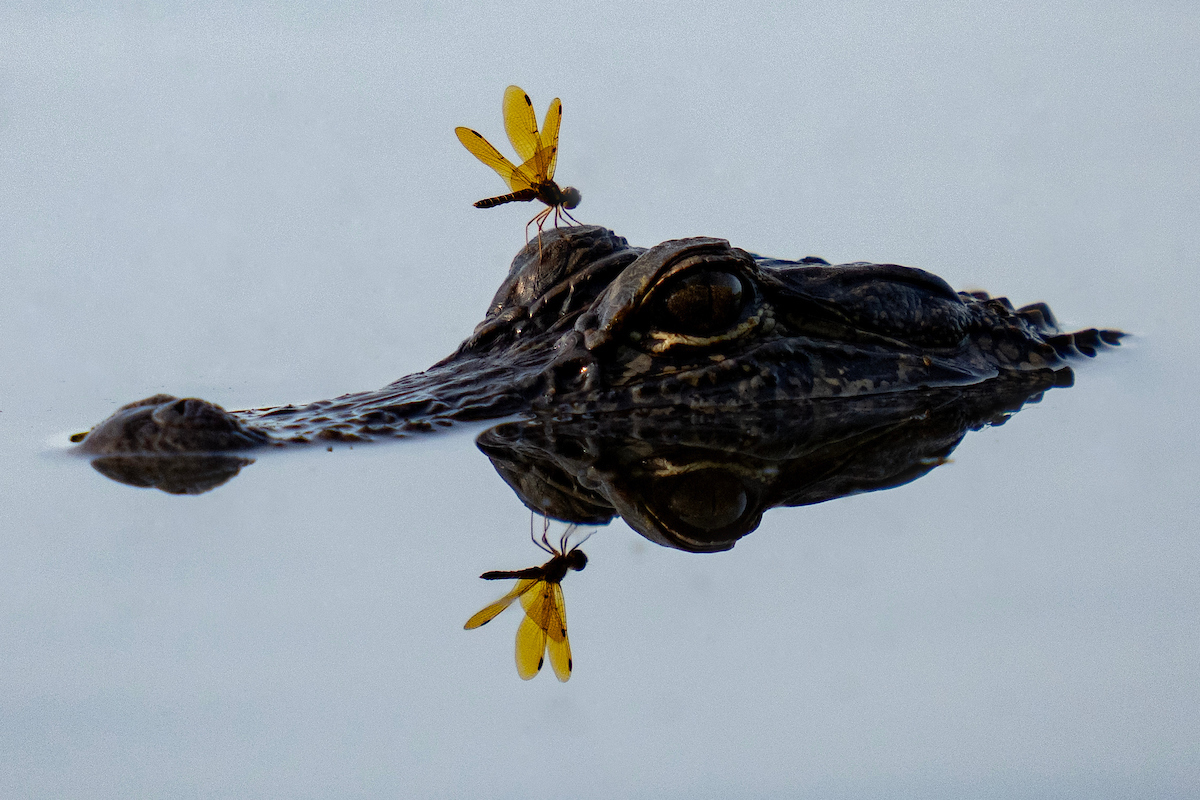Texas A&M AgriLife awards personnel across the state
Vice Chancellor Awards presented Jan. 14 recognize excellence in teaching, research, extension and service
Texas A&M AgriLife faculty and staff from across the state, as well as two students, were honored Jan. 14 with the Vice Chancellor’s Awards in Excellence.

“These awards represent the highest level of achievement for our organization,” said Mark A. Hussey, Ph.D., acting vice chancellor and dean of agriculture and life sciences. “They recognize a commitment to excellence and to the land-grant mission of teaching, research, extension and service. The entire Texas A&M AgriLife administrative leadership is extremely proud of the accomplishments of our faculty, staff and students.”
Recipients represent personnel in the College of Agriculture and Life Sciences, Texas A&M AgriLife Research, Texas A&M AgriLife Extension Service, Texas A&M Forest Service and Texas A&M Veterinary Medical Diagnostic Laboratory.
Teaching Awards
The Teaching Award was presented to Hojun Song, Ph.D., associate professor, Department of Entomology. Song is a dedicated and creative instructor who integrates his research expertise in insect systematics and locust biology into his classes. Recognizing the need for an undergraduate field entomology course, Song began a hands-on study-abroad course in tropical field entomology in Costa Rica. On this study abroad, a group of his students discovered a new species of king cricket. Song guided them through describing this species, leading to a published paper with the students as authors. When an online teaching format was necessary during the COVID-19 pandemic, a graduate student said Song offered clear and interesting lectures with practical exercises and activities that made the course fun and dynamic. The student continued, “The teaching strategies Dr. Song used improved my learning and made this class my favorite graduate-level course.”
The Graduate Student Teaching Award was presented to Jennifer Rhinesmith-Carranza, academic advisor and assistant lecturer and doctoral candidate, Department of Entomology. Although employed full-time as an advisor with the College of Agriculture and Life Sciences, she also serves as a teaching assistant and assistant lecturer for a wide range of forensic science and entomology courses. In 2019, she was recognized by the department as the Forensic Science Teaching Assistant of the Year. An outstanding mentor, she helps students apply for internships with the FBI, reviews resumes and cover letters for graduates and helps students prepare for national certification exams. In addition, she is one of six certified technicians on the American Board of Forensic Entomology and organizes workshops to teach law enforcement how to process entomological samples associated with crime scenes.
Research Awards
Vishal Gohil, Ph.D., associate professor, Department of Biochemistry and Biophysics and AgriLife Research, received the Research Award. Since joining the department in 2012, Gohil has established himself as a leader in mitochondrial biology and medicine. His vibrant research program has attracted over $5 million in research funding from federal agencies and private foundations. His findings on the drug Elesclomol have led to a licensing agreement with Engrail Therapeutics. This San Diego-based company will sponsor research in Gohil’s lab to further develop this drug to treat Menkes disease, a fatal pediatric disorder for which no treatment currently exists. Gohil has served as a reviewer at multiple National Institutes of Health study sections, has published in prestigious journals including Science, Nature Communications and Proceedings of the National Academy of Sciences, and has given invited talks at international scientific conferences.
Dmitry Kurouski, Ph.D., assistant professor, Department of Biochemistry and Biophysics and AgriLife Research, was presented the Early Career Research Award. Kurouski joined the Texas A&M faculty in 2017. His research program has already gained national and international recognition for developing novel spectroscopy technologies and proving their efficacy in numerous problems in agriculture and medicine. His accomplishments include developing diagnostics of plant diseases, commercializing a way to identify hemp varieties, differentiating between hemp and cannabis, and detecting abiotic stresses and nutrient composition in agricultural commodities. He also developed a nanoscale imaging technique to characterize unstable protein complexes. This project was awarded a $1.4 million grant from the National Institute of General Medical Sciences to study protein aggregates linked to Parkinson’s, Alzheimer’s and Huntington’s.
The Graduate Student Research Award recipient was Alper Adak, a doctoral student in the Department of Soil and Crop Sciences. Since enrolling in his doctoral program in 2018, Adak has been the primary author of four peer-reviewed research articles, greatly exceeding the standard for students in his department. He has given invited talks at international conferences and been sought out as a peer reviewer for publications in his field. One of his accomplishments was to conceive of and create a way to utilize unmanned aircraft systems data from the corn breeding and quantitative genetics program to predict yield and flowering times. However, his primary project is to identify genes responsible for the late flowering of Texas A&M AgriLife germplasm in northern climates. His poster on that work won first prize in the largest division at the Crop Science Society International Meeting in 2019.
Extension Education Awards
The County Agent Award was presented to Andy Holloway, AgriLife Extension agriculture and natural resources agent, Hemphill County. Holloway is described as a visionary who has built a network of support to put together some of the top educational programming in Texas. Thanks to his leadership, the Hemphill County Beef Conference has become the region’s top educational event. Attendance has steadily grown from 88 in 2015 to 715 in 2021. Corporate sponsorships have steadily grown, and this year the conference’s economic impact was estimated at over $20 million. Holloway’s many other contributions include a successful Oil and Gas Conference. And, during the 2017 Panhandle Wildfires, he helped AgriLife Extension stand up a large livestock supply point in Canadian that not only delivered necessary supplies to area ranches but also provided hope in the midst of the destruction.
The Extension Specialist or Program Specialist Award was presented to Larry Redmon, Ph.D., professor and associate department head and AgriLife Extension program leader, Department of Soil and Crop Sciences. Redmon’s educational presentations and seminars bring participants into the conversation, along with his expertise and ability to entertain audiences. The Ranch Management University, which draws participants from around the world, is one example. Evaluations have proven the annual event is highly effective in helping people adopt ranch management practices and land stewardship with an economic impact of $84 million. Redmon also spearheads the Bennett Trust programs. One of these programs caters specifically to women, providing them with the knowledge needed to make land stewardship and natural resource management decisions. Many attendees are new landowners and have little knowledge of where to begin with land ownership.
Service Awards
The Diagnostic Services Award was presented to Gabriel Gomez, DVM, Ph.D., veterinary pathologist and assistant agency director for pathology, Texas A&M Veterinary Medical Diagnostic Laboratory, TVMDL. Because of Gomez’s leadership and instruction, pathologists with TVMDL are some of the most respected in the nation, with a reputation for dedicated customer service to their clients and the livestock industry. Last spring, the detection of chronic wasting disease in several herds of deer in Texas prompted an emergency order that deer breeders submit thousands of samples to Gomez’s laboratory section. He implemented a plan to coordinate this testing without compromising routine caseload, and TVMDL successfully stepped up and completed the testing challenge by the September deadline. In the team effort, Gomez read up to 450 chronic wasting disease slides a day in addition to his administrative duties.
The Public Service in Forestry Award was presented to Richard Gray, chief regional fire coordinator, Texas A&M Forest Service. Some of the most notable agency restoration, mitigation and prevention efforts have occurred under Gray’s watch. His expert decision-making, people skills and innovative approaches have helped elevate the efficiency and effectiveness of incident response. He helped develop standard operating procedures and training that links prescribed burning academic and professional practices and fire management planning and application. For 23 years, Gray has been instrumental in the success of the Capital Area Interagency Wildfire and Incident Management Academy. Also, as a member of the Texas A&M Forest Service Leadership Enrichment Program, he helped build the capacity of Texas A&M Forest Service leaders by helping develop the New Supervisor Development Program.
The Special Services Award recipient was Mary Reed, chief apiary inspector with the Texas Apiary Inspection Service, Department of Entomology and AgriLife Research. Reed leads a team of apiary inspectors and provides educational and laboratory diagnostic services for beekeepers. Since 2015, she has been the primary coordinator of the Texas Master Beekeeper Program, which teaches beekeepers about honeybee physiology, biology and health. She also collaborated with AgriLife Extension and the Texas Beekeepers Association to develop an online beekeeping course for AgriLife Extension county agents and 4-H youth leaders to use in their programs. Reed has helped develop the Varroa Management Decision Tool, the Veterinary Feed Directive Factsheet and the Guide to Varroa Mite Controls for Commercial Beekeeping Operations. She is currently developing additional education resources for managing and mitigating a hive pest, the small hive beetle.
Staff Awards
The Business and Operational Staff Award recipient was Shelly Pasket, business coordinator, Department of Biochemistry and Biophysics. Pasket supports and coordinates numerous business activities for the department, including reviewing documents, monitoring accounts and budget data, processing travel expenses, working with vendors and managing purchases and invoices for faculty, staff, lecturers, technicians and graduate students. With more than 30 laboratories in the department, her in-depth knowledge of university business systems and rules helps Pasket accomplish much while serving the business needs of several hundred people. In 2017, her colleagues recognized her outstanding service with the Department Award of Excellence. In 2020, she demonstrated administrative leadership in training faculty and staff to switch to the AggieBuy ordering system.
The Office and Administrative Staff Award was presented to Jamie Norgaard, administrator I / assistant, who supports administrators in academic affairs, faculty affairs, inclusive excellence, advising and student success. Her time-management skills, contacts across the university and College, and attention to detail help keep the Dean’s Office moving forward. Faculty and administration remark on her thoughtfulness, diplomacy and courtesy in all interactions. For instance, for a department head search, she arranged all committee meetings, took notes, managed all communications, and made everything seem easy and run flawlessly. In another example, she detected some bottlenecks when coordinating college graduate fellowship competitions. She looked for solutions, met with decision-makers, and spearheaded bringing a new software platform into the office that will improve service.
The Technical and Programmatic Staff Award was presented to Carla Naylor, AgriLife Research senior research associate in Amarillo. Naylor oversees daily operations for the agronomy program led by Jourdan Bell, Ph.D. She designs experimental layouts, oversees field operations, plans all data collection, and ensures results are delivered to stakeholders on time. This season, she managed 37 unique field trials across the Texas Panhandle. Among them are 10 cotton trial sites set annually throughout the High Plains, each with up to 12 cotton varieties. Naylor works many late nights and weekends during the cotton season. The collected data has demonstrated that improved variety selection can increase net returns by over $300/acre. She also oversees the nation’s largest replicated sorghum silage trial, from planting to harvest. Because of her superior performance, she was awarded a Texas A&M AgriLife Research Director’s Award in 2020.
International Involvement Awards
The International Involvement Award was presented to Andy Herring, Ph.D., John K. Riggs ’41 Beef Cattle Professor, Department of Animal Science. Herring is passionate about teaching students and industry stakeholders globally to improve beef cattle productions systems. He has been part of the Fulbright Specialist Roster since 2016, also serving on the U.S. Department of State Bureau of Educational and Cultural Affairs and the Institute of International Education’s Council for International Exchange of Scholars. He has delivered guest lectures to animal breeding and genetic classes as a visiting faculty member in the Department of Animal and Wildlife Sciences at the University of Pretoria; led an assessment initiative to improve Dominican Republic beef and dairy value changes to achieve U.S. equivalency standards; and was on a Texas A&M AgriLife team assessing beef cattle production in Kazakhstan.
Katie Dunlap, Ph.D., instructional associate professor and associate head for academic programs, Department of Animal Science, received the Diversity Award. Dunlap has become nationally recognized for her work in serving the diverse population of students enrolled in animal science programs. Students appreciate her enthusiasm and genuine efforts to treat them as individuals. Colleagues rely on her feedback about innovative teaching strategies. Dunlap has been recognized for her accomplishments, most recently receiving the 2021 USDA Excellence in College and University Teaching in Food and Agricultural Sciences Award. Since 2020, she has served as faculty mentor for a cohort of National Posse Foundation Scholars at Texas A&M. In 2019, she was the College representative to our Qatar campus, developing programming and workshops for middle school students. She works diligently to enhance inclusivity, which has increased diversity and improved the workplace climate at her department.
Administration Award
Carl Muntean, acting program director for corporate engagement and research support with AgriLife Research, was the recipient of the Administration Award. Muntean and his grants team helped faculty submit nearly $160 million in grants, securing more than $44 million. Under his direction, the team launched several new programs and services that helped solidify faculty and staff. The Corporate Affiliates Program, which highlights growing relationships between the university and corporate partners, and an ongoing webinar series to aid faculty with developing competitive proposals have informed Texas A&M AgriLife about new funding opportunities. Muntean’s leadership also helped guide corporate sponsors through the specific details of sponsorship, while focusing on meaningful science and protecting the development of new intellectual property.
Team Collaboration Award
Team Award
The Texas A&M University – Prairie Project Team earned the Team Collaboration Award. The team consists of Bradford Wilcox, Ph.D., AgriLife Research ecohydrologist and Sid Kyle Endowed Professor, Department of Ecology and Conservation Biology; Ben Wu, Ph.D., professor, Department of Ecology and Conservation Biology and associate dean for faculty affairs, College of Agriculture and Life Sciences; John Walker, Ph.D., professor and AgriLife Research range scientist, and Morgan Treadwell, Ph.D., associate professor and AgriLife Extension rangeland specialist, Department of Rangeland, Wildlife and Fisheries Management, both at the Texas A&M AgriLife Research and Extension Center at San Angelo; Maria Macik, Ph.D., postdoctoral research associate and project manager, Department of Ecology and Conservation Biology; and Jacqueline Stillisano, Ed.D., research scientist, Department of Teaching, Learning and Culture in the College of Education and Human Development, Bryan-College Station.
The Prairie Project addresses complex environmental problems, facilitating the adoption of new land stewardship strategies to increase livestock production and promote rangeland health across the Great Plains. The $10 million USDA-funded project involves collaborators from Oklahoma State University, University of Nebraska, Virginia Tech, the University of Southern Illinois, the Nature Conservancy, the City of Austin, the LBJ National Grasslands, and ranchers and landowners. At three of the Prairie Project’s demonstration ranches owned and operated by AgriLife Research, experimental trials have been implemented to assess the ecological value of the use of fire. Four demonstration ranches throughout Texas have been uniquely paired with 4-H youth groups to collect data, engage with ranchers and learn about fire from data-driven assessments and field observations. AgriLife Extension is also working with Extension specialists across the Great Plains to replicate this demonstration ranch/4-H team approach. In addition, Extension efforts are underway to implement an information exchange “highway” through the Great Plains corridor. The goal is to foster a unique, peer-to-peer learning dialogue among ranchers regarding the application of multi-species grazing and prescribed fire.
Partnership Award
The Workforce Development Partnership was named as the recipient of the Partnership Award. Team members include Robert Devin, AgriLife Extension county agent emeritus, Workforce Development coordinator, Canyon; Danny Nusser, regional program leader, AgriLife Extension, Amarillo; Brady Miller, director of market, membership and education, Texas Cattle Feeders Association, Amarillo; Nate Wolf, Ph.D., assistant professor of agricultural education and leadership, and Kevin Williams, Ph.D., associate professor of agricultural education, both from West Texas A&M University, Canyon; and Warren Cat Machine Sales, Amarillo.
The Workforce Development Partnership was created more than 10 years ago to identify issues and provide critical training programs for the beef cattle feed yard industry. In this partnership, collaborative efforts among AgriLife Extension, West Texas A&M University and the Texas Cattle Feeders Association have launched successful Workforce Training and Feedyard Technician programs. The Feedyard Technician Program is a signature initiative that utilizes faculty and staff to teach youth. To date, approximately 1,200 students from 32 Texas schools have participated, some earning internships and finding employment in feed yard operations. The Texas Education Agency Industry-Based Certification Program has recognized the certificate program. These programs continue to meet the growing need for a labor force within the industry. They have helped attract students early and make them aware of the vast industry opportunities. This project is a prime example of a partnership that helps both education and industry.
Photos of the award recipients will be available online at tx.ag/2022VCAwardPhotos and the session can be viewed online at tx.ag/VCAwardsInExcellence.





